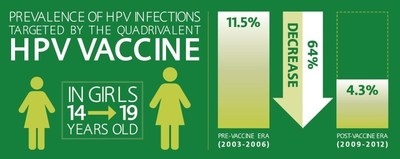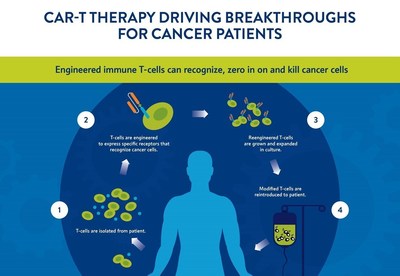WASHINGTON, June 2, 2016 /PRNewswire-USNewswire/ -- The pace of science is yielding remarkable innovation for cancer patients as we learn more about the underlying factors driving the spread and growth of cancer. These advances are opening new doors for treatment across a number of cancers, and at this week’s annual meeting of the American Society of Clinical Oncology (ASCO), we expect exciting new research on how novel waves of treatments may be able to further halt the spread of deadly cancers.

To celebrate this progress, a new PhRMA report, “A Decade of Innovation in Cancer,” highlights several cancers where significant advances over the past decade have transformed the way we treat the more than 200 diseases we call cancer, driving increased survival and better quality of life.
Here are some highlights from the report:
- Melanoma: A wave of immunotherapies has transformed the treatment of the metastatic disease. Before 2011, the median survival for metastatic melanoma patients was less than a year recently released data show that in one clinical trial, 40 percent of metastatic melanoma patients have survived three years after initiating immunotherapy.
- Breast cancer: Personalized medicines have opened important new doors for patients with HER2-positive breast cancer, which tend to be more aggressive than other types of breast cancer. One of these promising new therapies, called antibody drug conjugates, links powerful chemotherapy agents to an antibody, helping to steer the medicine directly to the tumor. These “smart bombs” enable the precise delivery of the medicine directly to the cancer cells, resulting in tumor shrinkage and prolonged survival.
- Cervical cancer: Virtually all cervical cancer is caused by the human papilloma virus (HPV), with several strains being identified as increasing that risk. Since the introduction of the first HPV vaccines, prevalence of HPV infection has dropped 64 percent among girls ages 14 to 19, helping to protect against cervical cancer.
- Lung cancer: Researchers have uncovered a number of genetic mutations that cause uncontrolled cancer cell growth. In advanced non-small cell lung cancer (NSCLC), several targeted therapies have emerged that interrupt those pathways, halting cancer growth. Two-thirds of advanced NSCLCs have a genetic mutation that can directly point to treatment, and more are continually being discovered.
As researchers continue to uncover additional important new uses for these medicines, we learn that genetic mutations driving cancer cell growth may be present among a variety of cancers. Similarly, the pathways by which cancers evade our immune system are present among a variety of cancers, and we are seeing the application of immunotherapies across a number of disease areas. In fact, the first immunotherapies for bladder cancer and for Hodgkin lymphoma were recently approved, and a new type of cellular immunotherapy, CAR-T, looks to take individualized immune-therapy to the next level. CAR-T extracts a patient’s own T-cells and re-engineers them to recognize cancer cells. When reintroduced, these “hunter” immune cells can recognize, zero in on and kill cancer cells.
As the burden of cancer grows in the coming years, these treatment advances, and those to come, like CAR-T therapy, will provide an important foundation for new waves of treatment options, offering patients and their loved ones a brighter outlook for the future. This progress also underscores the need to maintain an ecosystem that fosters the development of tomorrow’s cancer treatments and cures.
Learn more about how America’s biopharmaceutical research companies are fighting cancer here.
This post originally appeared here: http://catalyst.phrma.org/new-report-decade-of-breakthroughs-in-cancer
Contact: Holly Campbell; 202-835-3460; newsroom@phrma.org


Photo - http://photos.prnewswire.com/prnh/20160601/374405
Photo - http://photos.prnewswire.com/prnh/20160601/374406
Logo - http://photos.prnewswire.com/prnh/20091027/PHRMALOGO
To view the original version on PR Newswire, visit:http://www.prnewswire.com/news-releases/new-report-decade-of-breakthroughs-in-cancer-300278210.html
SOURCE Pharmaceutical Research and Manufacturers of America (PhRMA)





